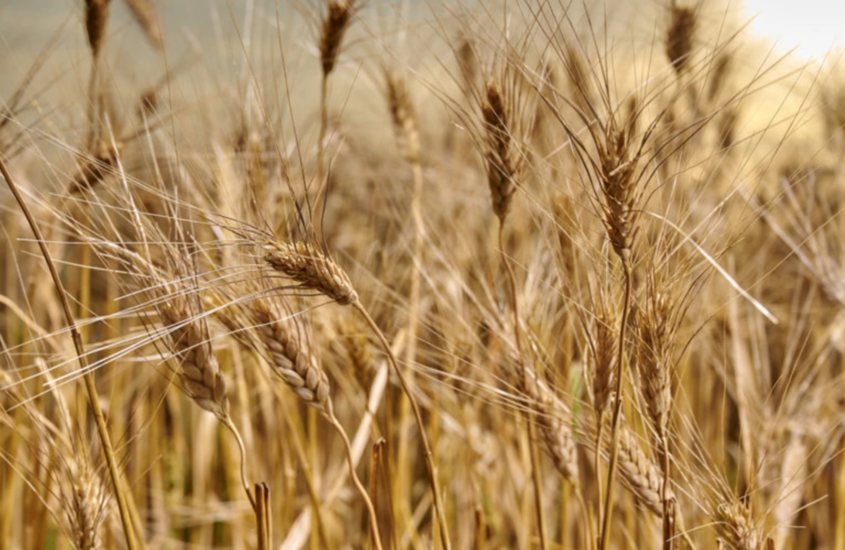Kamut: The Ancient Grain Making a Comeback
AmericanMom Team |
If you’ve been paying attention to the real food movement, you’ve probably heard about ancient grains. While modern wheat has been over-processed and stripped of nutrients, ancient grains like Kamut are making a comeback—and for good reason. This powerhouse grain is packed with nutrients, easier to digest than conventional wheat, and perfect for everything from sourdough baking to pasta. Let’s break down why Kamut is worth the hype and how it stacks up against the all-purpose flour sitting in your pantry.
What is Kamut?
Kamut, scientifically known as Triticum turgidum ssp. turanicum, is an ancient variety of wheat that has been around for thousands of years. Legend has it that Kamut was discovered in Egyptian tombs (hence its nickname, “Pharaoh’s grain”), but what we do know for sure is that it’s packed with flavor, nutrition, and history. Unlike modern wheat, Kamut is always grown organically and is non-GMO, ensuring a cleaner, more natural product.
Kamut vs. All-Purpose Flour: What’s the Difference?
We all grew up with all-purpose flour as the go-to for baking, but how does it compare to Kamut?
- Nutrient Density: Kamut beats all-purpose flour hands down when it comes to nutrition. It has more protein, fiber, and essential minerals like magnesium and zinc, which are often stripped from refined white flour.
- Gluten Structure: While Kamut contains gluten, it’s easier to digest for many people who struggle with modern wheat. The heavily processed gluten in all-purpose flour can cause inflammation and bloating, while Kamut’s naturally occurring gluten is gentler on the gut.
- Flavor & Texture: All-purpose flour is pretty neutral, while Kamut has a rich, slightly sweet, nutty flavor that adds depth to baked goods.
- Processing: All-purpose flour goes through bleaching and refining, stripping away most of its nutrients. Kamut, on the other hand, is minimally processed and retains its natural goodness.
Health Benefits of Kamut
1. Packed with Nutrients
Kamut is a nutritional powerhouse, loaded with:
- Protein: More protein per serving than regular wheat, keeping you fuller longer.
- Fiber: Supports gut health and digestion.
- B Vitamins: Essential for energy and brain function.
- Magnesium & Zinc: Important for immune function and overall wellness.
2. Gut-Friendly Goodness
With its high fiber content and more digestible gluten structure, Kamut is easier on the stomach than conventional wheat. Many people who experience bloating from all-purpose flour find Kamut much gentler.
3. Supports Heart Health
Studies show that whole grains like Kamut can help lower cholesterol, regulate blood pressure, and reduce inflammation—important factors in heart disease prevention.
4. Steady Energy & Blood Sugar Control
Unlike refined white flour, which causes blood sugar spikes and crashes, Kamut provides sustained energy thanks to its complex carbs and high protein content.
Why Sourdough Kamut is Next-Level
If you really want to maximize the benefits of Kamut, go for sourdough Kamut bread. The fermentation process:
- Breaks down gluten for even easier digestion.
- Enhances nutrient absorption by reducing phytic acid.
- Creates a rich, tangy, nutty flavor that’s hard to beat.
- Lowers glycemic impact, making it a better option for blood sugar control.
How to Use Kamut in Your Kitchen
Kamut is versatile and can be used in so many ways:
- Sourdough Kamut Bread: A must-try for real bread lovers.
- Kamut Flour: Great for pancakes, muffins, cookies, and homemade pasta.
- Whole Kamut Berries: Use them like rice in grain bowls and salads.
- Kamut Pasta: A healthier, more flavorful alternative to regular wheat pasta.
Who Should Avoid Kamut?
Since Kamut is still a type of wheat, it’s not suitable for people with celiac disease. However, if you have a mild gluten sensitivity, you may tolerate Kamut better than modern wheat.
The Bottom Line
Kamut is the real deal—nutrient-dense, flavorful, and way better for you than processed white flour. Whether you’re baking up a batch of sourdough, making pasta from scratch, or just looking to cut out over-processed foods, Kamut is a worthy addition to your pantry. Time to ditch the bleached flour and bring this ancient grain back into modern kitchens!






